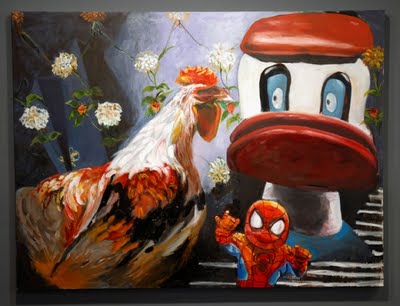To cut to the chase: the creation of art is a risky business. There are few guarantees of quality, of profundity or of the longevity of the work’s appeal. The creation of any sort of art is therefore an experiment, and as with a scientific experiment, failure is a possible outcome.
Failure, then, is one source of bad art. But without the possibility of failure, success is at best limited to a narrow variation on what has already worked. But if we hope to see something original and news, we should realistically be prepared for the failed attempt.
More to to the point, we should not take the product of the failure to accomplish a goal as the intended goal itself. Artists do not set out to create bad art. It seems unlikely that an artist like Luc Bondy, who despite his relative obscurity in the United States, has been directing in the theater and the opera house for over 30 years, should continue in such a career if all he has to offer is shock value and disrespect. This is like a man who hates buildings dedicating his life to architecture; it just doesn’t make sense.
Similarly, even so reviled (by me, I mean) a singer as Renée Fleming surely doesn’t deliberately set out to annoy me or Bellini or Lerner and Loewe. Her conscious goal must surely be to sing expressively.
What is possible is for an artist to have poor taste, or for his talent to fail him when presented with a task that baffles him, or for that artist’s work simply not to appeal to a certain segment of the audience. But for some reason there seems to be a divide in the perception of the seriousness of creative artists like composers, as opposed to recreative artists, like singers or the dreaded stage directors. There are plenty of music lovers who, for whatever reasons, profess to detest the music of Wagner, and perhaps an equal group who cannot abide Puccini. But how many people say, “Wagner was deliberately smearing mud on music” or “Puccini had no talent, so he resorted to shock effects?”
Well, to tell the truth, out there on the interwebs you could probably find a few people who would endorse both these statements and more, but the only reaction I can offer to them is pity, because in their bitterness and prejudice they are missing out on some magnificent music. For the the larger group here and elsewhere who are ready, even eager, to condemn the work of an artist as “trash” sight unseen, again I can only feel pity, alloyed perhaps with a tinge of hope that one day they might have the scales fall from their eyes.
Though, admittedly, it’s perhaps harder to see good intentions when they’re not very well executed.



